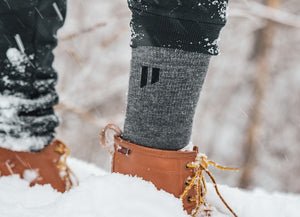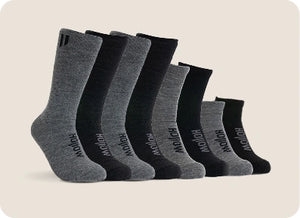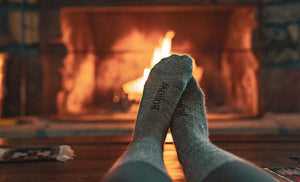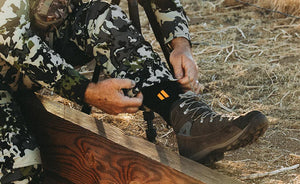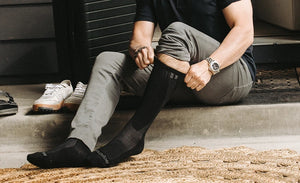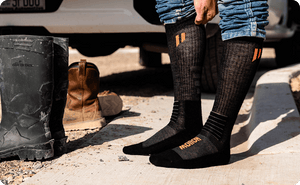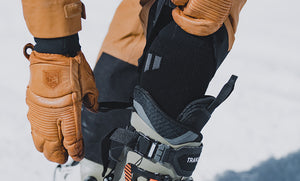So what makes a warm winter sock? Some ideas that would answer the question - wool, alpaca, camel, yak, cotton - so many choices, but what's the best? The balance of warmth and cost makes alpaca fiber the stand out.
Importantly, alpaca socks are not just for winter, but they do offer a great amount of performance in a less bulky package. They can really help through those cold days and nights on wintertime adventures.

Keeping warm starts with your hands, head and of course, your feet. Warm hats and gloves are plentiful, but look at any outdoor forum and you'll see that foot warmth seems to be the most difficult problem for outdoorsmen and women to solve.
Finding great socks that keep your feet warm and dry can be a tough endeavor.
We recommend that if you’re looking for the warmest winter socks you can buy, you need to look past socks made of wool and find a great pair of alpaca socks. Merino wool socks can be nice, but the truth is that nothing beats alpaca socks for keeping your feet warm, dry, and comfortable. In fact, alpaca socks can be up to three times warmer than socks made from sheep’s wool. Let’s look at why that is.
The big reason socks made from alpaca fibers do a better job keeping feet warm during winter is that alpaca hair fibers are hollow. This means that alpaca socks are better than wool at keeping air circulating around your feet and wicking moisture away from your skin. So while you’re outside this winter, your feet will stay warmer and dryer when you wear alpaca socks.
While seemingly counterintuitive, not only will alpaca keep your feet warmer and dryer in winter, but they’ll stay cooler and dryer in summer as well. Why? It’s all about keeping the air moving, and the moisture wicking away from your skin and evaporating. Hollow alpaca fur fibers make it all happen. Alpaca fiber can evaporate at nearly 3x the rate of merino wool, so pound for pound, alpaca socks according to fabric testing by http://www.ymccoll.com/.
Alpaca fiber can attain these properties without having to resort to massively thick winter socks either, so you can stop buying shoes that are 1/2 size larger than you need and that also helps to keep your feet warmer in the winter. Conversely having ultra thick socks can create problems too like cutting off blood flow to your feet making you feel much colder due to a lack of circulation. Having a proper boot for conditions that fits well is a massive piece of the puzzle to preventing cold toes out in the field.
Yocum tests also showed that if worn in a 0 degree F environment, alpaca would give a 50 degree F comfort range. Sheep’s wool would provide a 30 degree F comfort range in the same environment. The study concluded that alpaca heavy medullation (hollowness) allowed warmer air to be captured by the fibers which kept the users feet feeling warmer, longer.
In summary, alpaca fiber is hypoallergenic, less itchy and comparably priced to merino wool yet outperforms in critical testing. Alpaca delivers more warmth with less bulk than other fibers and is extremely luxurious to the touch as well.
So next time your feet are feeling the bite of winter, look around for a high performing alpaca sock that can help your feet stay warmer, longer regardless of what old man winter throws at you.



